In today’s world, more businesses are striving to make a positive impact on society. One growing trend is the rise of B Corporations (B Corps)—companies certified to meet rigorous standards of social and environmental performance, accountability, and transparency. The number of B Corps in America are on the rise and it is important to understand why.

Source: B Lab Global
These businesses balance profit with purpose, demonstrating that success is not just about the bottom line but also about contributing to the common good. With over 4,000 B Corps worldwide, including many in the U.S., this movement is gaining momentum. So, who are the top B Corps in America, and what makes them stand out?
In this blog post, we’ll dive into the top 10 B Corps in America, explore their impactful contributions, and answer key questions you might have about B Corps. Whether you’re a conscious consumer or a business owner looking for inspiration, you’ll find valuable insights into the companies making waves in sustainability and social responsibility.
What Are B Corps?
Before we jump into the top B Corps, let’s clarify what it means to be a B Corporation. B Corps are businesses that meet the highest standards of verified social and environmental performance, public transparency, and legal accountability to balance profit and purpose. The certification is issued by B Lab, a nonprofit organization that assesses companies across several areas, including governance, workers, community, environment, and customers.
Why Do B Corps Matter?
B Corps aim to create a more inclusive and sustainable economy. These companies don’t just focus on short-term gains but work to make long-lasting positive impacts. Consumers today are more mindful of where their money goes, and B Corps provide a clear standard for those wanting to support ethical businesses. Moreover, B Corps help address some of the world’s biggest challenges, such as climate change, social inequality, and environmental degradation.
Top 10 B Corps in America Making a Difference
1. Patagonia
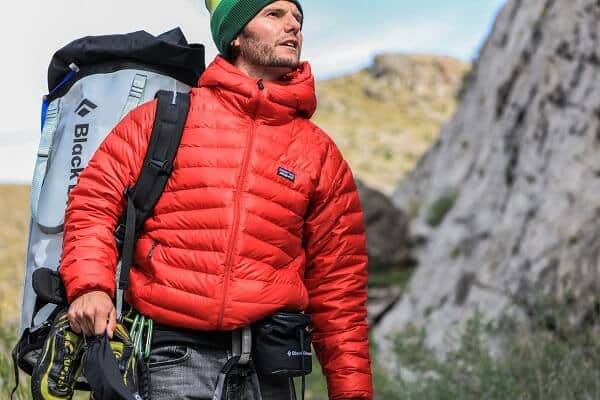
When you think of B Corps, Patagonia is often the first company that comes to mind. Known for its outdoor apparel, Patagonia has been a pioneer in environmental responsibility. The company donates 1% of its sales to environmental causes and emphasizes sustainable sourcing and ethical labor practices. Patagonia’s bold commitment to activism, including its “Don’t Buy This Jacket” campaign, has helped redefine what it means to be an ethical company.
2. Ben & Jerry’s
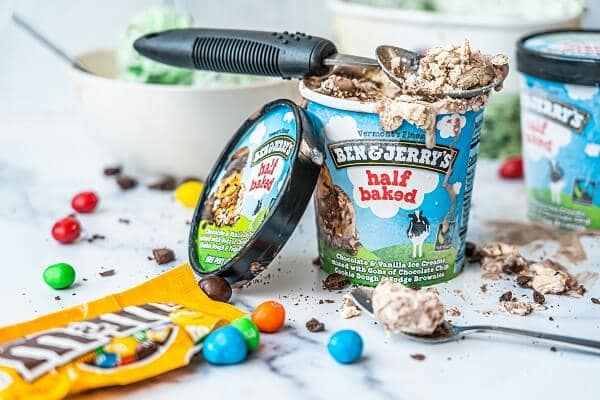
Ben & Jerry’s, the famous ice cream brand, is another standout B Corp. From promoting marriage equality to fighting for racial justice, Ben & Jerry’s uses its platform to advocate for social change. The company’s commitment to using Fairtrade-certified ingredients and minimizing environmental impact demonstrates its dedication to ethical business practices.
3. Etsy
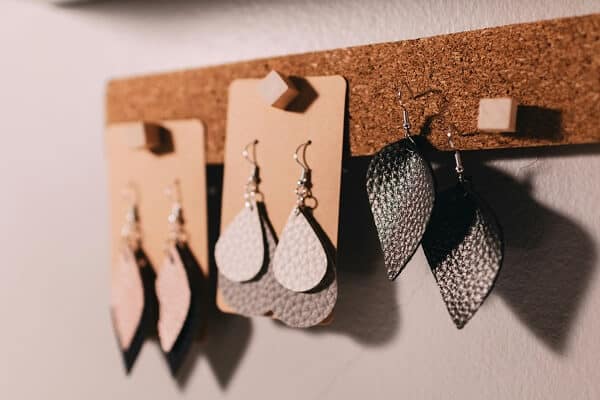
Etsy, an e-commerce platform for handmade and vintage items, supports small, independent sellers while maintaining high environmental and social standards. Etsy’s efforts to offset 100% of its carbon emissions and foster diversity and inclusion among its sellers have helped it earn B Corp certification. The company also prioritizes transparency, regularly publishing reports on its sustainability initiatives.
4. Dr. Bronner’s

Dr. Bronner’s is a family-owned maker of organic soaps and personal care products. The company is renowned for its commitment to fair trade, organic ingredients, and environmental sustainability. Dr. Bronner’s also donates a significant portion of its profits to support progressive causes, such as regenerative agriculture and criminal justice reform.
5. Seventh Generation

Seventh Generation produces eco-friendly cleaning and personal care products. The company aims to “transform the world into a healthy, sustainable, and equitable place” by offering products made from renewable plant-based ingredients. Seventh Generation also prioritizes responsible sourcing, packaging, and reducing its carbon footprint.
6. New Belgium Brewing
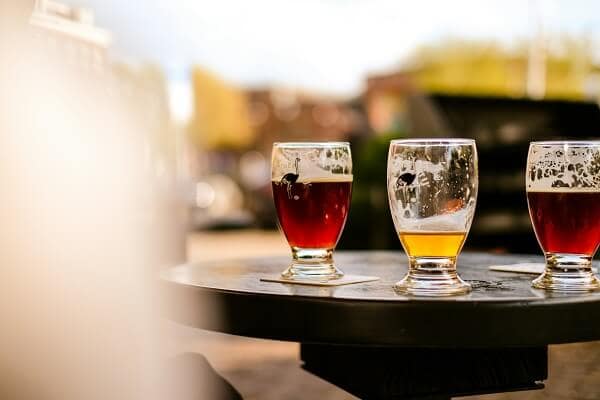
New Belgium Brewing is known not only for its craft beer but also for its sustainability efforts. As one of the largest certified B Corp breweries, New Belgium has invested heavily in renewable energy, water conservation, and waste reduction. The brewery also operates as an employee-owned company, ensuring that profits are shared among its workers.
7. Warby Parker

Warby Parker, an eyewear company, revolutionized the industry by offering stylish, affordable glasses with a social mission. For every pair sold, the company donates a pair to someone in need through its Buy a Pair, Give a Pair program. Warby Parker also focuses on sustainability, using recycled materials for its glasses and offering eye exams in underserved communities.
8. TOMS Shoes

TOMS popularized the “one-for-one” business model, where the purchase of one product results in a donation to those in need. Originally focused on shoes, TOMS has expanded its giving efforts to include health, education, and environmental causes. As a certified B Corp, TOMS maintains high ethical standards and continues to evolve its social impact strategies.
9. Danone North America

Danone North America is one of the largest Certified B Corps in the U.S., producing dairy and plant-based products under brands like Oikos, Silk, and Horizon Organic. Danone North America has pledged to use business as a force for good by prioritizing sustainability in its supply chain, reducing food waste, and supporting regenerative agriculture practices.
10. Allbirds
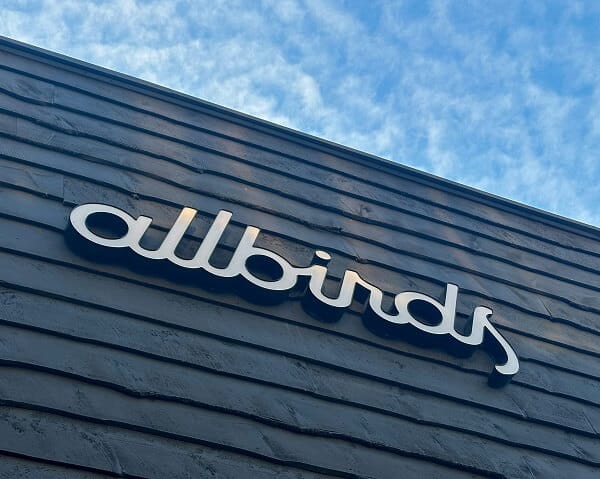
Allbirds has made a name for itself in the footwear industry with its eco-friendly and minimalist shoes. The company uses sustainable materials like merino wool and eucalyptus tree fibers, and it’s committed to being carbon neutral. Allbirds is pushing the boundaries of sustainability, aiming to reduce its carbon footprint to nearly zero.
Frequently Asked Questions About B Corps
1. What Does It Take to Become a B Corp?
To become a B Corp, a company must complete a rigorous B Impact Assessment, which measures its performance in five key areas: governance, workers, customers, community, and environment. A company needs to score at least 80 points out of 200 to become certified, and the certification must be renewed every three years.
2. Why Do Companies Become B Corps?
Businesses seek B Corp certification to demonstrate their commitment to higher ethical standards, differentiate themselves in the marketplace, and join a community of like-minded organizations. Certification also holds companies accountable to their mission of doing good.
3. Are B Corps Profitable?
Yes! B Corps prove that businesses can be profitable while pursuing social and environmental goals. In fact, many B Corps report improved financial performance due to enhanced customer loyalty, employee satisfaction, and operational efficiency.
4. Can Any Company Become a B Corp?
In theory, any for-profit company can become a B Corp, regardless of size or industry. However, the process is rigorous, and not all businesses may meet the high standards required for certification.
5. How Can I Support B Corps?
One of the easiest ways to support B Corps is by consciously choosing to buy products and services from certified companies. By doing so, you’re helping to support businesses that prioritize sustainability, ethical labor practices, and social responsibility.
The Impact of B Corps: Why It Matters Now More Than Ever
As the global economy shifts towards a more responsible and sustainable model, B Corps are at the forefront of change. Consumers are demanding more accountability from companies, and B Corps are responding by leading with transparency and ethical practices. These businesses not only offer high-quality products and services, but they also contribute to a broader social good.
Supporting B Corps means supporting a future where businesses contribute to the well-being of all stakeholders—employees, customers, communities, and the planet. In the face of urgent global challenges like climate change and inequality, B Corps provide a blueprint for how businesses can operate responsibly while thriving financially.
The rise of B Corps represents a shift in how we define success in business. The top B Corps in America—like Patagonia, Ben & Jerry’s, and Etsy—are proof that companies can balance profit with purpose, benefiting both their bottom line and the world around them. As more consumers and businesses embrace this movement, the impact of B Corps will only grow, pushing the boundaries of what ethical business practices can achieve.
Whether you’re a consumer looking to make more informed choices or a business owner seeking to make a positive difference, supporting and learning from B Corps can help shape a more sustainable and equitable future for all.
Pingback: How Does B Corp Certification Work and Why Should Your Company Apply? A Step-by-Step Guide for Business Leaders - Ecological Crusader
Comments are closed.